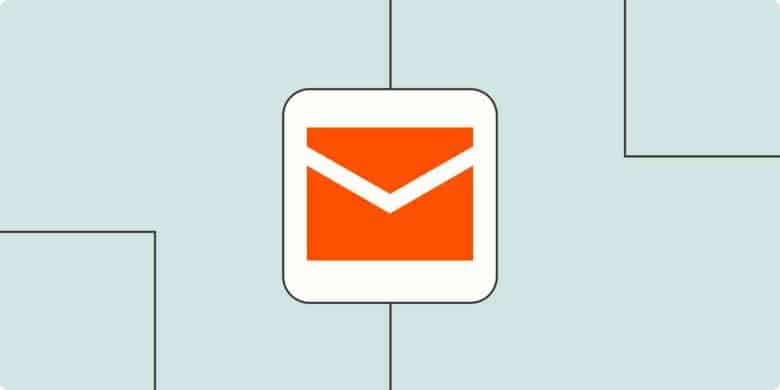In the competitive landscape of the hospitality industry, email marketing has emerged as a powerful tool for hotels to increase bookings and revenue. With the ability to reach potential and existing guests directly, email marketing offers a personalized approach that can drive engagement, loyalty, and conversions. This guide provides a comprehensive overview of effective email marketing strategies tailored for hotels, helping you leverage this tool to its fullest potential.

Table of Contents
Understanding the Power of Email Marketing
Email marketing involves sending targeted messages to a group of recipients via email. For hotels, this can include promotional offers, newsletters, personalized recommendations, and more. The advantages of email marketing are manifold:
- Direct Communication: Email allows hotels to communicate directly with their audience, bypassing intermediaries.
- Personalization: Emails can be tailored to individual preferences and behaviors, enhancing the guest experience.
- Cost-Effectiveness: Compared to traditional advertising, email marketing is relatively inexpensive.
- Measurable Results: Email marketing platforms provide detailed analytics, allowing hotels to track open rates, click-through rates, and conversions.
The foundation of any successful email marketing campaign is a robust email list. Here’s how to build and maintain an effective list:
1. Website Sign-Up Forms
Include sign-up forms on your hotel’s website, making it easy for visitors to subscribe to your emails. Offer incentives such as exclusive discounts or a free guide to the local area to encourage sign-ups.
2. Social Media Promotion
Promote your email list on social media platforms. Use engaging posts to highlight the benefits of subscribing, such as special offers and insider news.
3. In-Person Collection
Train your front desk and concierge staff to ask guests if they would like to join your email list at check-in or check-out. Providing a digital or physical form can streamline this process.
4. Partnerships and Collaborations
Partner with local businesses or tourism boards to expand your reach. Collaborations can help you tap into new audiences who may be interested in your hotel.
5. Clean Your List Regularly
Regularly clean your email list to remove inactive subscribers. This ensures higher engagement rates and reduces the risk of your emails being marked as spam.
Crafting Compelling Email Content
The success of your email marketing efforts depends largely on the quality of your content. Here’s how to create emails that captivate and convert:
1. Personalized Offers
Use data such as past bookings, preferences, and behaviors to tailor your emails. Personalized offers can significantly increase engagement and conversions.
2. Engaging Subject Lines
The subject line is the first thing recipients see, so make it compelling. Use action words, create a sense of urgency, or ask intriguing questions to grab attention.
3. Visual Appeal
Incorporate high-quality images and videos that showcase your hotel’s amenities, rooms, and local attractions. Visual content can make your emails more engaging and memorable.
4. Clear Call-to-Actions (CTAs)
Each email should have a clear and concise CTA, guiding recipients on what to do next. Whether it’s booking a room, signing up for an event, or taking advantage of a special offer, make sure the CTA stands out.
5. Mobile Optimization
Ensure your emails are optimized for mobile devices. Many users check their emails on smartphones, so a mobile-friendly design is crucial for a positive user experience.
6. Content Variety
Mix up your content to keep your audience engaged. This can include promotional offers, informative newsletters, event invitations, and personalized recommendations.
Segmenting Your Audience
Segmenting your email list allows you to send more targeted and relevant messages. Here are some common ways to segment your audience:
1. Demographics
Segment your audience based on demographics such as age, gender, and location. This can help you tailor your messages to different groups.
2. Booking History
Use past booking data to create segments. For example, you can target repeat guests with loyalty offers or entice previous guests who haven’t visited in a while with special promotions.
3. Engagement Levels
Segment your list based on engagement metrics such as open rates and click-through rates. This allows you to re-engage inactive subscribers with win-back campaigns or reward active subscribers with exclusive offers.
4. Preferences and Interests
Gather data on your guests’ preferences and interests, either through surveys or their interactions with your website. Use this information to send personalized recommendations and offers.
Automating Your Email Campaigns
Automation can streamline your email marketing efforts, ensuring timely and relevant communication with your audience. Here are some key automated campaigns to consider:
1. Welcome Series
Set up an automated welcome series to greet new subscribers. This can include a warm welcome message, an introduction to your hotel, and a special offer to encourage their first booking.
2. Abandoned Cart Reminders
If your booking process allows for it, set up automated reminders for guests who started but didn’t complete their booking. Gentle nudges can help recover lost bookings.
3. Birthday and Anniversary Offers
Celebrate special occasions by sending automated birthday and anniversary emails with exclusive offers. This personal touch can enhance guest loyalty.
4. Post-Stay Follow-Ups
After a guest’s stay, send a follow-up email thanking them for their visit and encouraging them to leave a review or book their next stay.
5. Re-Engagement Campaigns
Identify inactive subscribers and set up automated re-engagement campaigns. Offer special incentives to bring them back into the fold.
Analyzing and Optimizing Your Campaigns
Regular analysis and optimization are essential to improving your email marketing performance. Here’s how to approach this:
1. Monitor Key Metrics
Track metrics such as open rates, click-through rates, conversion rates, and unsubscribe rates. These metrics provide insights into how your emails are performing.
2. A/B Testing
Conduct A/B tests to determine what works best. Test different subject lines, email designs, CTAs, and send times to find the optimal combination.
3. Feedback and Surveys
Collect feedback from your subscribers through surveys. Ask them what they like and dislike about your emails, and use this feedback to make improvements.
4. Continuous Improvement
Use the data and insights you gather to continuously refine your email marketing strategy. Stay updated with industry trends and best practices to keep your campaigns fresh and effective.
Expanding Reach: Email Campaigns to Non-Customers
While hotel email marketing is often focused on engaging current guests and past visitors, it’s equally important to reach out to potential new customers. By targeting non-customers, you can expand your audience and attract new guests to your property. Here are some strategies to effectively send email campaigns to non-customers:
1. Lead Generation Campaigns
Develop lead generation campaigns to collect email addresses from potential guests. This can be done through various methods such as:
- Content Offers: Create valuable content such as travel guides, eBooks, or discount vouchers that require an email address to download.
- Social Media Ads: Run targeted ads on social media platforms that encourage users to sign up for your email list in exchange for exclusive offers or content.
- Contests and Giveaways: Host online contests or giveaways that require participants to provide their email addresses to enter.
2. Partnerships and Collaborations
Collaborate with local businesses, tourism boards, and travel influencers to expand your reach. By partnering with complementary brands, you can tap into their audience base and gain new email subscribers. Consider joint campaigns where both parties benefit from the shared exposure.
3. Targeted Advertising
Utilize targeted advertising to reach potential guests who may not yet be familiar with your hotel. Platforms like Facebook and Google Ads allow you to create highly targeted campaigns based on demographics, interests, and behaviors. Encourage users to sign up for your email list by offering a compelling incentive.
4. Travel and Booking Websites
Partner with travel and booking websites to feature your property and collect email addresses from interested travelers. Many travelers visit these sites for recommendations and deals, making them prime candidates for your email campaigns.
5. Referral Programs
Implement referral programs that incentivize current guests to refer new potential guests. Offer discounts or rewards to both the referrer and the referred guest when the latter subscribes to your email list or books a stay.
6. Event and Conference Participation
Participate in travel expos, conferences, and local events to connect with potential guests. Collect email addresses through sign-up forms, contests, or by offering exclusive event-related discounts.
7. Personalized Outreach
Use personalized outreach to engage potential guests. This could involve sending tailored emails to those who have shown interest in your hotel through inquiries or website visits but haven’t booked yet. Use personalized messages to highlight what sets your property apart and offer special incentives to encourage a visit.
8. Nurture Campaigns
Once you’ve collected email addresses from non-customers, it’s crucial to nurture these leads effectively. Develop a series of welcome emails that introduce your hotel, highlight unique features and amenities, and provide information on special offers or upcoming events. Gradually build a relationship with these potential guests, guiding them towards making a booking.
Crafting Effective Email Campaigns for Non-Customers
When creating email campaigns for non-customers, consider the following tips to maximize engagement and conversion:
- Compelling Subject Lines: Craft subject lines that capture attention and spark curiosity.
- Highlight Unique Selling Points: Emphasize what makes your hotel unique, such as location, amenities, or special packages.
- Clear and Attractive Design: Use visually appealing designs that are easy to read and navigate.
- Strong Call-to-Action: Include a clear call-to-action that guides recipients towards signing up, visiting your website, or booking a stay.
- Social Proof: Incorporate testimonials, reviews, and social media mentions to build trust and credibility.
By effectively targeting non-customers through strategic email campaigns, you can significantly expand your reach and attract new guests to your hotel. Leveraging these tactics will not only increase your email subscriber base but also drive new bookings and revenue growth.
Leveraging Expert Guidance for Maximum Impact
Utilizing the expertise and over 30 years of experience of Americas Great Resorts for your email marketing campaign can be a game-changer in finding new customers. With a deep understanding of the hospitality industry and a proven track record of successful marketing strategies, Americas Great Resorts can help you navigate the complexities of email marketing. Their seasoned team offers insights into the latest trends, personalized strategies tailored to your hotel’s unique needs, and access to cutting-edge tools and technologies. By partnering with Americas Great Resorts, you can ensure that your email campaigns are not only expertly crafted but also strategically targeted to attract and convert potential guests, ultimately driving significant growth in bookings and revenue.
Final Thoughts
Email marketing is a vital tool for hotels looking to increase bookings and revenue. By building a strong email creative, crafting compelling content, segmenting your audience, automating campaigns, and continuously analyzing and optimizing your efforts, you can create an effective email marketing strategy that drives results. Embrace the power of email marketing to connect with your guests, enhance their experience, and boost your hotel’s success.

